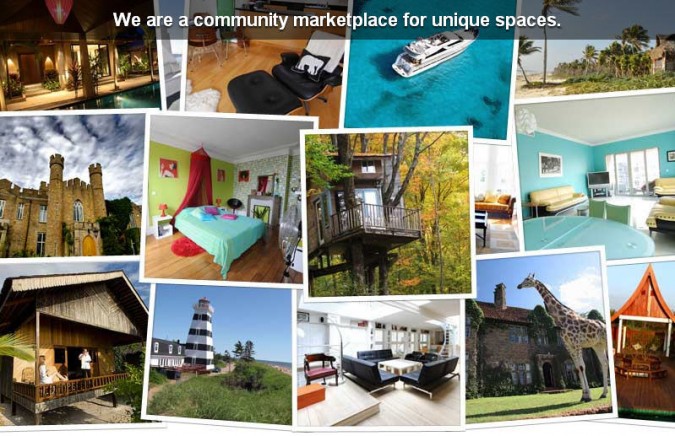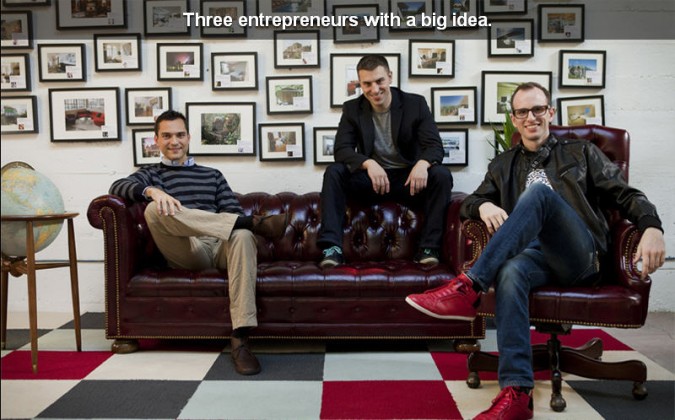Airbnb hosting is fun with minimal risk
Airbnb, formerly Air Bed and Breakfast, is in the news this week.
According to news reports like this one on TechCrunch.com, a host’s home was ransacked by a paid guest. Apparently this is the first time this has happened, even though Airbnb says their site has arranged over 2 million nights of stays.
If this is the worst that’s happened in 2 million nights, that sounds like a better record than hotels and motels likely have. I suspect that the rate of guests being actually attacked in a hotel is higher than 1 in 2,000,000, though I have no facts to back up that hunch.
There is controversy about what happened, with Paul Graham, the founder of Y Combinator saying the host may be lying. I don’t know what did or didn’t happen, and I’m not taking sides here.
Here are some more links to stories about the controversy:
The Airbnb Horror Story Continues
On Safety — A Word from Airbnb
Airbnb Responds to User Horror Story
I will share my experience with Airbnb below.
I was an Airbnb host in 2009. I made about USD $800.
I offered the living room in my detached San Francisco house at USD $40.00 per night. I had a lot of takers, and I absolutely loved being a host. It was a highlight of that year. I got to meet so many interesting travelers, including guests from France, Czech Republic, Austria, Japan, Oklahoma and even San Francisco.
I never felt unsafe even though I hosted groups as large as four people.
I increased my feeling of safety by installing an electronic deadbolt. I assigned a new door code for each guest or group of guests, and I deleted the code when they departed. So nobody retained access to my house after their visit.
I also made a copy of the government issued identification documents of each guest, and I locked these copies in a safe and scanned them and emailed them to myself. So even if a guest burned down my house, I would be able to give the authorities copies of the IDs of my guests.
I would guess that the person who allegedly had their apartment ransacked didn’t make a copy of the ID of their guest. I think AirBNB should instruct hosts to do so. After all, hotels and motels in the US are required to ask to see your ID, so guests are trained to not think anything of such a request. I’ve been asked for my passport at all the hotels, motels and youth hostels I’ve stayed at outside of the US, so I suspect there is a law requiring such requests almost worldwide.
I suspect that people are less likely to ransack a place after they’ve had their ID copied by the host.
One of the most interesting guests I had in 2009 was a guy who arrived by motorcycle from his San Francisco apartment. He stayed the night but didn’t shower in the morning. He went home for that, I guess. Why did he stay here, alone?
Airbnb was considering hiring him, and part of the hiring process required that applicants try the service. He was very talkative, and since we were both in the Internet field, we had a lot to talk about. I recall Airbnb had fewer than 10 employees at the time. I could tell Airbnb was a great company on its way up, up, up. What a business model — I recall they collect 20% of the rental price for playing matchmaker and escrow agent.
According to recent news reports, Airbnb recently closed a USD $112 million dollar venture capital investment at a valuation of USD $1,300,000,000 (sic). If that guy that stayed with me for a night got hired, he’s likely now worth millions on paper. I’m happy for him.
Here are some links to articles about Airbnb:
AirBNB Could Have More Rooms than Hilton by 2010
My Ultimate Bachelor Pad on AirBNB
I know two people who used Airbnb to book a multinight stay in an apartment in Paris, France. They got the entire place to themselves. I saw pictures and the home was charming and simply lovely. There was no elevator and there were six flights of spiral stairs to climb, but I bet those stairs made the place particularly memorable for the travelers. I am not criticizing Airbnb or Paris for the stairs. I really believe that charming old buildings help their occupants form strong memories. It was probably a pain to lug suitcases up six flights of stairs. But as those memories fade, I believe the fond memories of the apartment will remain, and that even 50 years from now those travelers will fondly remember their cute Paris apartment, but they won’t remember any of the corporate hotels they stayed at back then, no matter how costly or opulent.
I was inspired to become an Airbnb host by my brother Andrew Warnock. On his honeymoon with his wife, they booked an apartment in Prague, Czech Republic by visiting a booking booth in the Prague central train station. He said the apartment was really great, and that he would repeat the experience.
Now, back to the Airbnb property damage controversy. AirBNB is worth more than a billion dollars now. They are famous. They are targets, and they’ll need to deal with that, sadly.
I can easily see a situation where hosts stage a trashing of their home, hoping to get new housing, courtesy of a rich and well liked startup. I would think that Airbnb will ultimately decide to require hosts to email them the IDs of guests on the day of checkin. This will allow Airbnb to be a central repository of the identification documents, and will help greatly if a host is ever hurt such that they can’t point the authorities to the location of the IDs. Airbnb already stores the credit card details of its guests, so storing their IDs should not raise the eyebrows of well intentioned guests. However, it should greatly alarm poorly intentioned guests.
With the widespread adoption of smart phones with cameras, hosts can photograph and send photos by MMS or email. If it’s decided such systems are not secure enough, Airbnb could write a set of phone apps that would use the camera to take the picture. Then, the apps could encrypt the picture and directly connect to servers at Airbnb. In this way, the sensitive ID documents could be securely transmitted to Airbnb while bypassing the Internet’s open email infrastructure.
Again, I don’t know what happened in the current ugly situation in the news. If the host’s home was ruined by a guest, then perhaps AirBNB should pay the deductable for any insurance the host carries. I do think that AirBNB shouldn’t be fully on the hook for all the damages, because that’s what renters’ or homeowners’ insurance is for. What if a guest accidentally burns down an apartment building by careless use of candles or the stove? Should AirBNB have to spend millions to rebuild an apartment building? I don’t think that’s fair or just. The terms of service should require that hosts carry suitable insurance as a condition of being a host.
I’m sure all these issues will get worked out. I met one of the founders of Airbnb in 2009 when he came to my house with his camera and tripod to take pictures for my profile. When he learned I already had pretty good pictures on my profile, he didn’t take any and we used his time at my house to talk about Airbnb. I had a good feeling about him, and I suspect if his other cofounders are similar, that the company will come though this situation stronger. The founders of Airbnb are Nathan Blecharczyk, Brian Chesky and Joe Gebbia. I can’t remember which founder came by my house.
I have a website for my house where you can see the pictures I used when I was an AirBNB host.
I continue to be a huge fan of Airbnb and I hope to again be a host. The reason I am not a host right now is I have four young female roommates sharing my house as tenants, and it just doesn’t seem nice to ask them if I can allow random strangers to share their bathroom, as much as I think it’s safe.
Disclosure: I am friends with Sam Angus, a partner at law firm Fenwick & West LLP. Angus represents Airbnb. I haven’t had any contact with Angus about this controversy.



